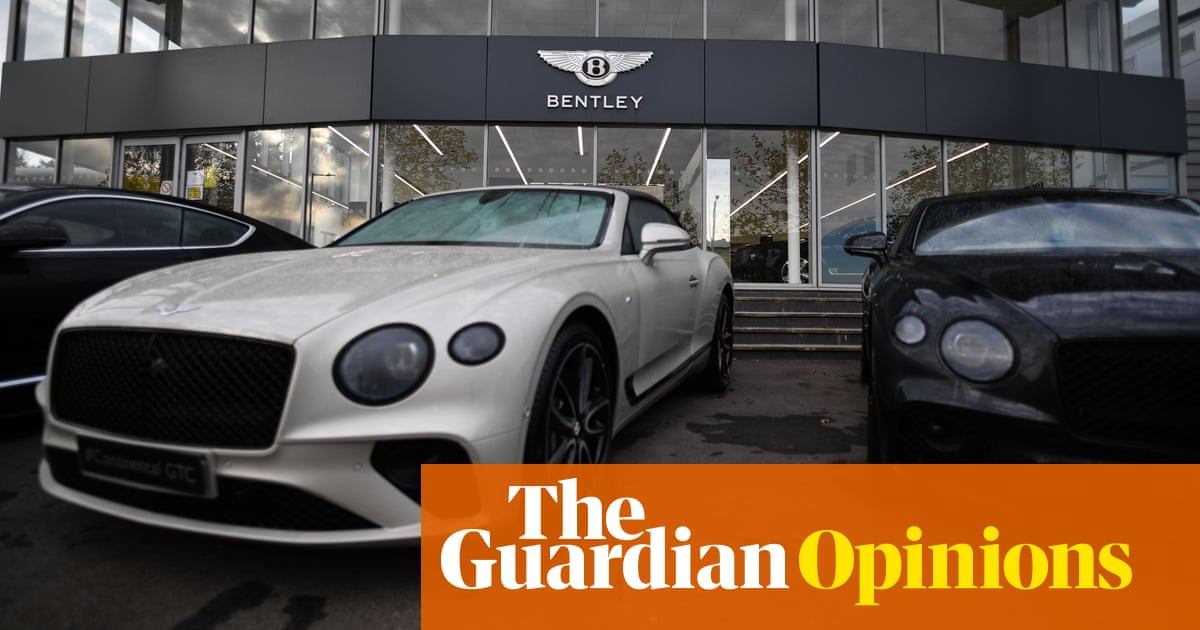The Bank of England’s monetary policy committee (MPC) has voted to keep interest rates at 5.25% in an attempt to curb inflation; the squeeze on homeowners, borrowers and renters continues. The thinking is that if we all just hunker down and get through this period of pain, the bank will meet its 2% inflation target and we’ll all start to feel better off.
Except, for some of us, this isn’t our experience at all. For millionaires like me, who own our homes outright, the decisions of the MPC make virtually no difference to our outgoings. Free from the shackles of high borrowing rates, we’re able to spend to our hearts’ content. In fact, for those with cash in the bank, higher interest rates actively boost income and spending power. There is cash to be spent on original artworks to decorate their several homes; and travel between residences, adding to both the climate and housing crises.
It is this unshackled spending of the very wealthiest that is keeping rates for everyone else so high. And don’t just take my word for it – take MPC member Catherine Mann’s comments. As long as the richest have so much spare cash, everyone else will have to feel the squeeze in a “collective” effort to bring down inflation. In the meantime, high rates mean the wealthiest see a nice boost to their savings – the top 10% are expected to receive 65% of the £90bn in household savings in 2024-2025.
How can it be that in the middle of an unprecedented fall in living standards, the people who can least afford to pay for the inflation crisis are being told it is their spending that needs to be curbed? Not only is this counterintuitive (how can you curb the demand of families who already have so little disposable income?) – it is completely unfair.
Instead, as the campaign group Stop the Squeeze has argued, we need a response to the cost of living crisis that tackles the structural inequalities that got us into this mess, not one that entrenches them.
Let’s start with our broken tax system. We continue to hear about how high our taxes are, but the truth is that while our system disproportionately taxes the vast majority who get their income from work, those who are already wealthy from investments, rent and inheritances are taxed relatively lightly. Our own prime minister, who earned more than £2m last year and is married to a billionaire, pays the same effective tax rate as a teacher.
The good news is, there are plenty of ways to address this imbalance. Equalising rates of capital gains tax with income tax, so that income from wealth is taxed at the same level as income from work, would raise £16.7bn a year. Removing loopholes and reliefs from inheritance tax would raise around £1bn a year. Applying national insurance more consistently across all forms of income could raise over £30bn a year. And an annual tax on stocks of wealth would raise nearly £12bn a year. Together, a package of higher taxes on wealth could raise billions to fund cost of living support in the short term and provide essential public goods such as a strong social safety net and clean, affordable energy provision in the future.
As a member of the campaign group Patriotic Millionaires UK, I want rich people like me to pay our fair share of tax. And I’m not alone. Nearly 75% of millionaires also want higher taxes on wealth.
The Bank of England is right to want to curb inflation. But the idea of squeezing low- and middle-income earners so that millionaires can keep spending on luxury items isn’t the way forward. We urgently need to tackle the root causes of the cost of living crisis, and we can start by introducing higher taxes on wealth.







